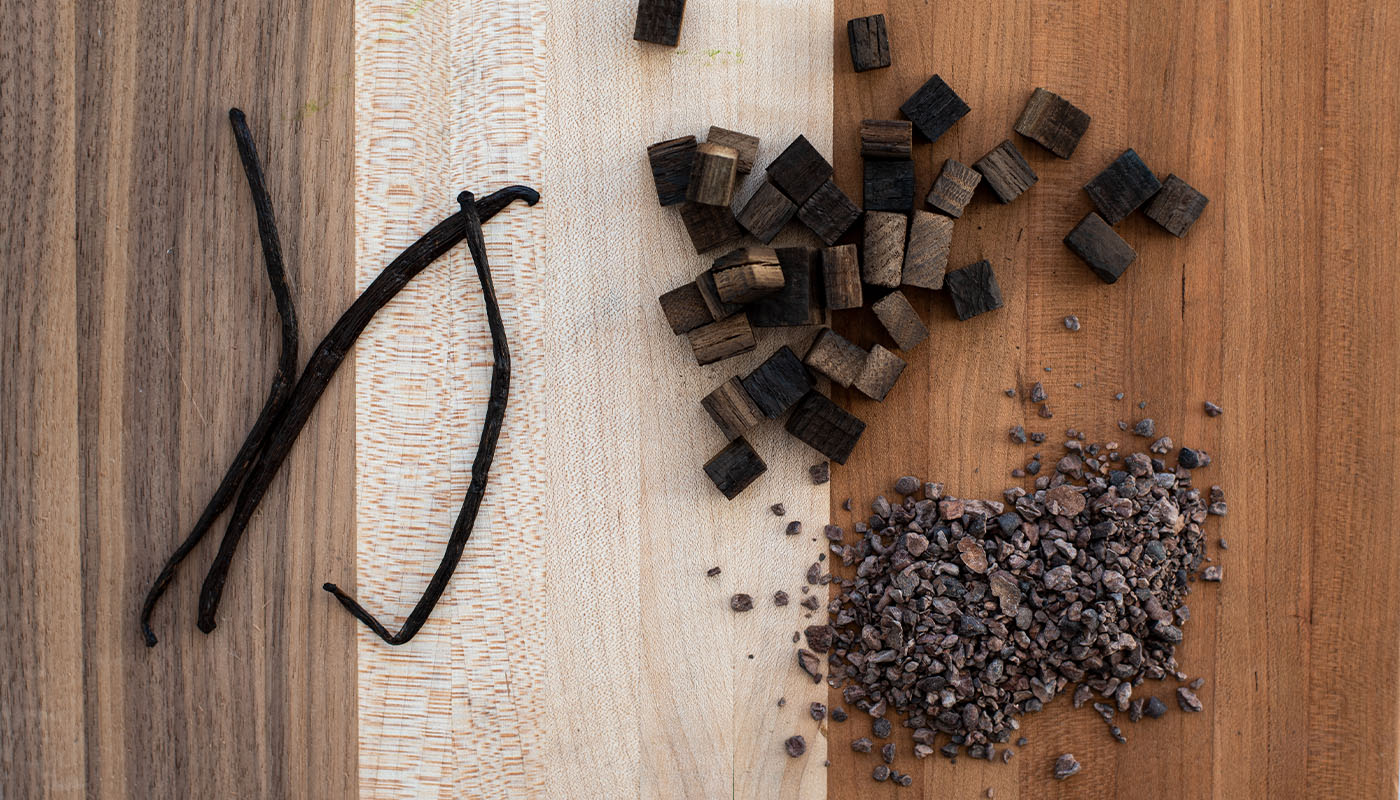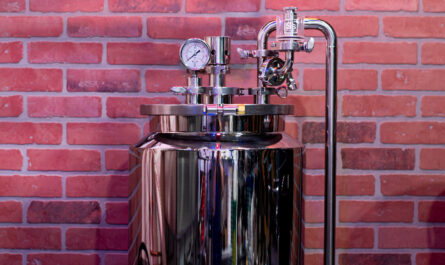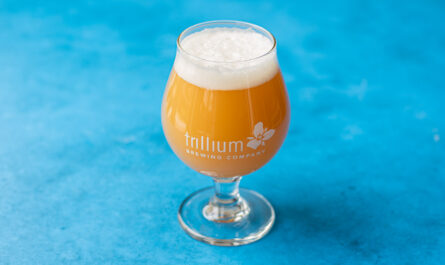This past winter I acquired a new appreciation for rich and flavorful pastry stouts. There is certainly a very wide array of stouts on the market today. From ultra-dry low ABV stouts all the way to cloyingly sweet concoctions that both taste and resemble maple syrup.
I find my personal preference to be somewhere in the middle—I enjoy body and richness without feeling like I can only drink 3 ounces before I keel over. This medium-bodied chocolate/coconut imperial stout is just the right balance of rich and flavorful without being overly syrupy and sweet. With subtle notes of chocolate, roasted coffee, oak, and coconut, this recipe delivers a sophisticated version of an Almond Joy candy bar or even German chocolate cake.
I built my grist and process loosely off this recipe from WeldWerks. You can use either grist as a solid chocolaty base recipe and supplement whatever secondary flavors/adjuncts you wish. This recipe can also be tailored to whatever ABV you’re searching for. For a true imperial stout according to BJCP guidelines, target at least 8%. Overall, I’m really pleased with how this one turned out.
As an FYI, if you plug this recipe into brewing software, you may get a much lower predicted final gravity than actual. This recipe finished at 1.029, while Brewfather predicted 1.020.
Vanilla, Oak, Cacao, and Coconut

This recipe features additions of vanilla beans, bourbon-soaked oak cubes, cacao nibs, and coconut extract. I added cacao nibs (in a mesh bag) to the primary fermenter for 3 days once fermentation was completely finished. In my experience, the cacao nibs introduced bitterness and raw chocolate flavor very quickly. I was hesitant to age it any longer, although I’ll leave this up to you. The vanilla beans, oak cubes, and coconut were added directly to the keg in a stainless hop tube and can remain there for the duration of the beer. I was on a bit of a rushed timeline to get this beer done, so you could optionally do warmer extended secondary aging.
This stout recipe would be a prime candidate for extended aging in an actual oak barrel. My plan is to brew this again and age it for 6 months in oak over the same adjuncts before packaging. Maybe I’ll add cinnamon sticks too?
Coconut Options
I used McCormick coconut extract for this recipe however there are a few other options. Coconut extract is easy to use and adds instant coconut flavor. Start with 3/4-1 ounce and add more to taste. I personally really liked the McCormick extract because it added just the right coconut flavoring I was looking for.
The other option would be to use unsweetened coconut flakes. Coconut flakes can be optionally toasted and soaked in vodka or boiled in water to create a concentrated homemade “extract” that can be directly added during packaging/kegging. You can also add whole toasted flakes to the fermenter. This thread on HBT has some insightful info on brewing with coconut.
Ingredients
Fermentables
13 lb (62.5%) — 2 Row — 3.5 °L
2 lb (9.6%) — Chocolate Malt — 369.7 °L
1 lb 12 oz (8.4%) — Oats, Flaked — 1.6 °L
1 lb (4.8%) — Weyermann Caramunich I — 38.2 °L
1 lb (4.8%) — Chocolate Malt Pale — 222 °L
1 lb (4.8%) — Crystal 60L — 44.9 °L
12 oz (3.3%) — Roasted Barley — 443.5 °L
5 oz (1.5%) — Acidulated — 2.8 °L
Hops
1 oz (31 IBU) Nugget 13% — Boil — 60 min
Yeast
2 packs SafAle US-05
Other
Whirlfloc – 15 minutes
4 ounces cacao nibs (3 days at terminal gravity)
3 vanilla beans, split lengthwise (added to keg)
2 ounces American oak cubes (soaked in bourbon and added to keg)
3/4-1 ounce coconut extract (added to keg). Do not measure with a “shot glass” these are more like 1.5-2 ounces.
Water Profile
I used Campden-treated tapwater for this recipe. My naturally higher chloride and low sulfate water worked with what I was trying to achieve.
Specifications
Method: All-grain BIAB
Batch size: 4.5 gallons
Efficiency: 65%
OG: 1.109
FG: 1.030
ABV: 10.3%
IBU: 31
SRM: 86
Target Mash pH: 5.4
Mash Temp: 150°F – 60 minutes
Boil: 60 minutes
Fermentation Temp: 66-70°F
Notes
Pitch yeast at 66°F and let free rise to low 70’s towards the tail end of fermentation. Let ferment for 7-10 days before adding cocoa nibs. Crash and transfer to keg. I added my oak and vanilla beans directly to the serving keg in a stainless hop tube. Add coconut extract directly to the keg before filling. Carbonate to 2.3 volumes of CO2. This beer will benefit from 2-3 weeks of aging to mellow out.
If you plug this recipe into brewing software, you may get a much lower predicted final gravity than actual. This recipe finished at 1.029, while Brewfather predicted 1.020.
This recipe can be adjusted to whatever ABV you’re searching for. For a true “imperial stout,” target at least 8%.





The flavors all sound like an absolute dream. Though I feel like I could fall into easily drinking more than I should just because the taste can fool me of how much beer I am consuming haha
Got local to brew Plain chocolate stout after being caught eating chocolate and drinking oat stout, they brewedtwo barrels putting in the bar on Thursday both gone by Sunday night and I only got 1 pint!Since change of brewer they are sticking caramel and coffee in it and it is awful and lot’s going down the drain!Stick with Chocolate 🍫. Must try it myself. Next time maybe cannabis infusion with chocolate!
A really interesting recipe. Worth a try. Did a Cherry Chocolate Kolsche once it was unique.
You should try Brew York’s ‘Imperial Tonkoko’
Took a beans, vanilla, cocoa nibs and coconut.
7.4% Absolutely superb!
What would you recommend for cutting it down to a one gallon batch?
Simple division or is there something to take into account?
I would try division. Just be sure to scale post fermentation additives. Use brewing software for everything else.
I’ve been looking for an imperial chocolate/coconut recipe for a while. How does this one taste? Has anyone tried adding lactose?